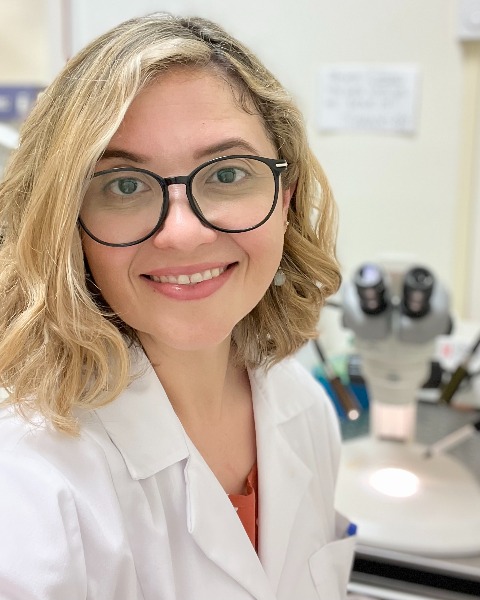Back
Member Symposium
Arthropod–Microorganisms–Host Interactions On-Demand Presentations
No guts, no glory! The lone star tick microbiome and its implication for a management strategy
On-Demand

L. Paulina Maldonado-Ruiz
Postdoctoral Research Associate
Kansas State University
Manhattan, Kansas
Yoonseong Park
Professor
Kansas State University
Manhattan, Kansas
Presenting Author(s)
Co-author(s)
Ticks are obligatory ectoparasites that feed on vertebrates and are capable of transmitting pathogens during blood feeding, causing health problems in animals and humans globally. In the United States, the geographic distribution and expansion of the lone star tick, Amblyomma americanum, has been linked to increased cases of tick-borne illnesses. In our previous study on tick osmoregulatory physiology, we described that metastriate ticks, including Amblyomma sp, voluntarily drink water through the mouthparts, which is later directed to the gut and the salivary glands. We demonstrated the importance of the tick drinking behavior by feeding dehydrated ticks with inorganic toxic agents, causing tick mortality within three days. A number of Bacillus thuringiensis strains have been previously reported to cause tick toxicity, thus; we investigated the effects of 20 different bacterial inocula, from Bacillus and other spore forming bacteria in tick survival through voluntary drinking. Two of the Bt serovars tested, showed significant mortality at 7 days after ingestions, while 5 other spore forming bacteria were recovered from tick midguts after 15 days following the first exposure, suggesting midgut colonization. The use of pathogenic/colonizing microorganisms in ticks could be developed into useful tools for suppression of tick population or manipulation of the tick midgut microbial homeostasis to mitigate tick vectorial capacity by using a para-transgenesis strategy.

